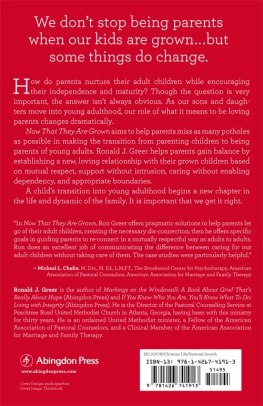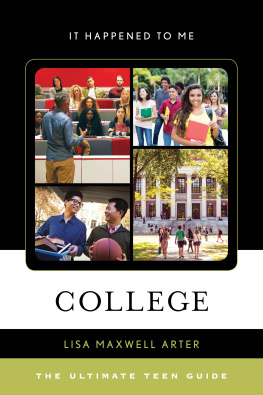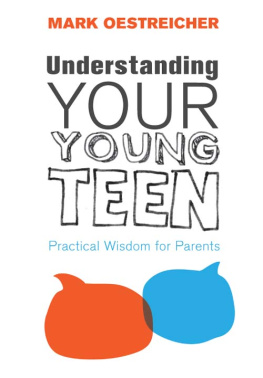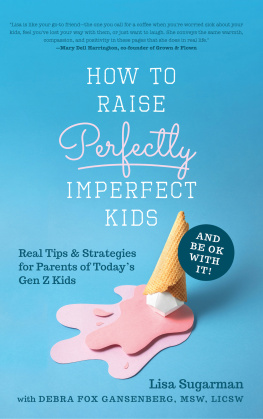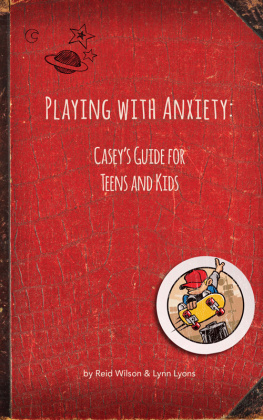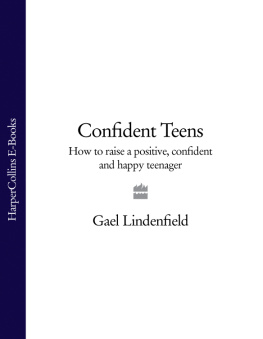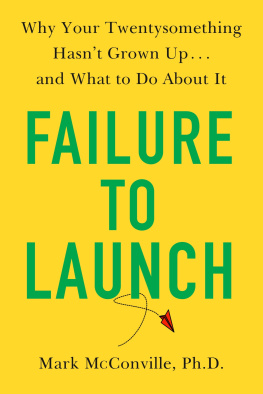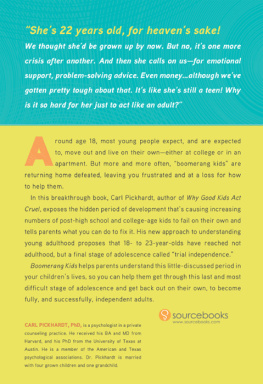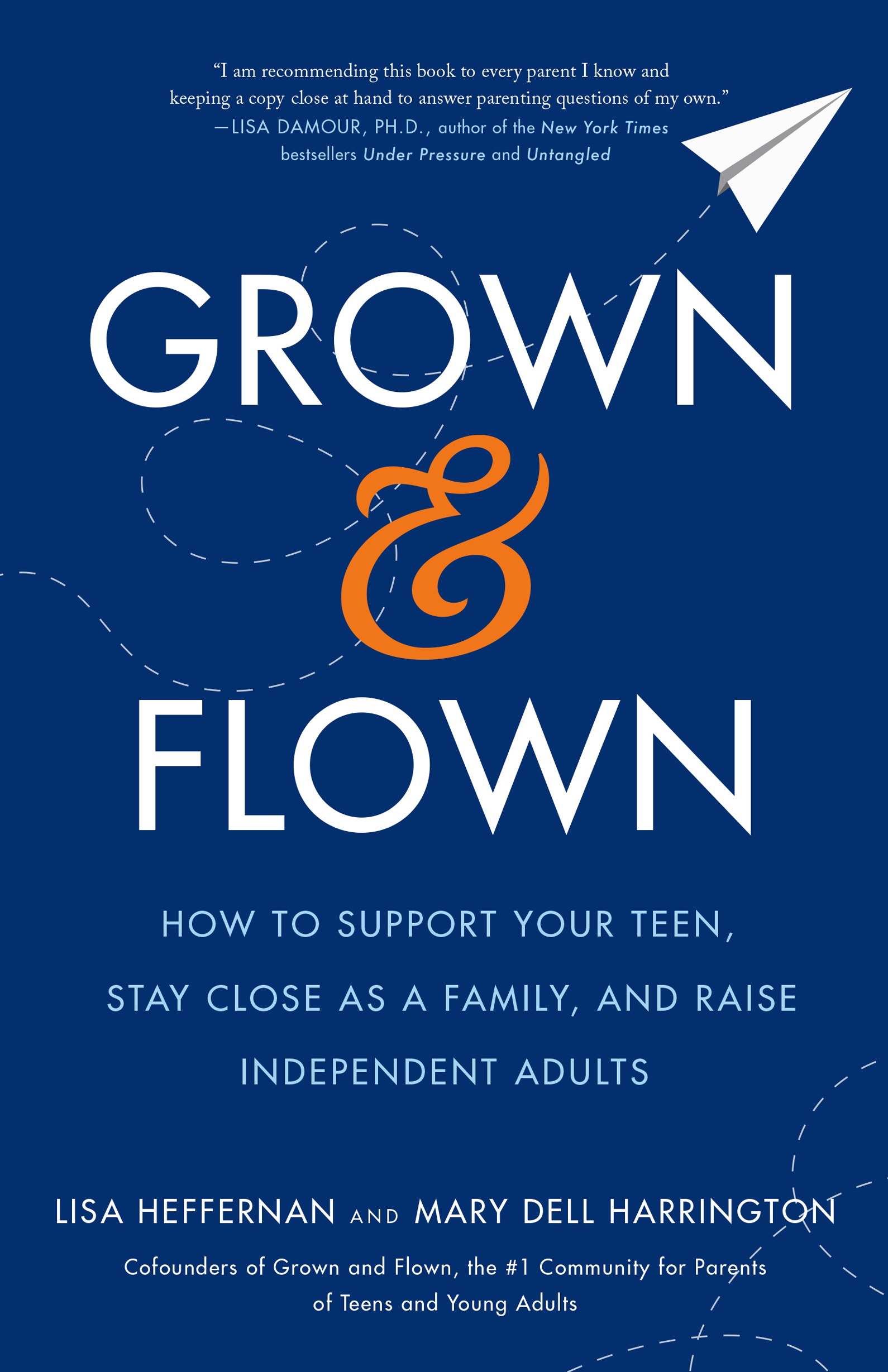The author and publisher have provided this e-book to you for your personal use only. You may not make this e-book publicly available in any way. Copyright infringement is against the law. If you believe the copy of this e-book you are reading infringes on the authors copyright, please notify the publisher at: us.macmillanusa.com/piracy.
Life gave them to me. Im preparing myself, as best I can, to give them back to life.
CHARLES M. BLOW
We had a little bit of Mom Swagger going on. We had overparented each of our oldest sons straight into college, and our younger kids seemed to be making progress through high school. We had started a website that focused on the Grown and Flown years of parentingthe period when our offspring are moving through ages fifteen to twenty-fiveand our roles as parents are changing. We had gathered other writers whose work we admired and published them on the site. We had cultivated a small audience, established an online community, and just for a moment, we thought we knew what we were doing.
Then came the email.
The writer of the email, Janet, said she had been following us on social media, reading our site, and had gleaned a few useful things along the way. Flattery is a powerful force. Given that this was our first fan letter, Swagger might have just tilted over into Smugness, but we read on.
My daughter Kate is starting college in September and my husband was just diagnosed with stage 4 cancer. Financially, thankfully, we should be okay. My concern is my daughter and getting her off to a good and mentally sound start. I couldnt find anything onlinethen I thought of you.
I want her to go and be excited and happy about her new start, without having to worry about her father. Pipe dream, I know, but Im hoping to get her as close to that as possible. My first thought is to reach out to the college to find a personthe personto be a contact. I dont want to have to call and explain everything five times before I can get her some support.
Any advice, suggestions, or resources you could provide would be most welcome.
To say that we had not one useful piece of advice to offer our first fan would be an understatement. We, who had effortlessly poured ourselves onto the digital page up to this point, were at a loss for words. We could not, dared not, fob her off with some sort of parenting platitude that would make us sound knowledgeable. We offered our sorrow and our support and told her we were thinking about her.
And then we did what parents have always done, something that would help us to become better parents and hopefully help the millions of readers who would later find Grown and Flown to become better parents. We admitted that we had absolutely no idea what to do. We fessed up to having little insight to give her.
Instead, we offered the one thing we could and said we would ask other parents, our larger community, what they would do in her situation. We acknowledged to her and our readers that with only five data pointsthe kids in our two familieswe didnt know much outside of our own experiences. Alongside her, we had much to learn from others.
We reached out through social media to our readers, some of whom might have walked in her shoes and some of whom, we hoped, had helped in situations similar to this in their professional work with teens or college students. It was all that we had to give.
The response was overwhelming and heartening. After posting Janets question anonymously, we stepped back and let the community lift and guide her. And we turned a crucial page in our outlook toward parenting. Experts are essential, and they draw from their experience as they show us what science and research have to offer us. But a parent community can be an invaluable asset, offering support, insight, and all the lessons they have learned while raising their kids. This we could provide.
This reader, our reader, gave Grown and Flown purpose. We would no longer just chitchat about being parents and share our latest off-the-cuff idea or weekly story from our families, hoping it might resonate with our readers. We had to do more.
Beyond the tragedy unfolding in Janets life, her problems in finding guidance to help her daughter were manifold. She had reached that stage of parenthood where our experts abandon us. When our children reach their late teen years, we no longer go in to see the pediatrician with them. Rarely do we interact with their teachers, and we are not supposed to talk to their coaches or advisers. That is up to them to do.
Our community disbands as well. Long gone are pickups and drop-offs of teens, who have now learned to drive. There is no more lingering at the door of a friends house while we catch up with fellow parents. No more parking-lot or bus-stop chats as we ferry our kids to school.
When our parenting challenges were toilet training or quelling tantrums, it was easy to discuss them with a friend or neighbor. With the appearance of teen anxiety or depression, and our children bearing ever more of a resemblance to adults, their privacy becomes paramount. Their issues are not so easily discussed when we run into friends in the grocery store. And even when we are happy to divulge their stories in the name of finding some real help, we might not know someone whose kid had been cited for academic dishonesty or a DUI. In the tiny orbit of people we know in real life, it becomes harder, or even impossible, to find someone who has experienced the same pain or joy we are living through.
Finally, this stage of parenting often feels as though it goes unnoticed. The internet is full of smart, funny, insightful, inspiring websites dedicated to raising kids until they are teens. But then the high school years seem to be overlooked. And there is barely a word written about being the parent of a college student. It is as if our kids turn thirteen and someone says, You got this, leaving us to apply the lessons we have learned in the first dozen years to the next couple of easy, glide-path years preceding launch. Youve done the hard work, youve created and then shaped a human being, and now your work is largely done.
Only that is entirely wrong.
We founded Grown and Flown without a clear idea of what it would become. We had only the notion that, with each of our youngest being fifteen years old and our oldest sons ages nineteen and twenty, we were in the midst of the most confusing, challenging, and consequential years of parentingand we were doing it with less community, fewer experts, and no help online.
So Lisa called Mary Dell one day and said she thought we needed a blog. We needed a website and maybe a Facebook page where we could ignite a conversation among parents of teens. We needed a digital watercooler, a place where parents would linger and chat while giving each other the support that was often missing in our real lives. At the time, the Motherlode column in The New York Times would occasionally have wonderful writing about being the parent of a high school student. But if you searched around beyond that, there wasnt much more.
Mary Dell said yes before even hearing half of the half-baked idea. She was immediately on board with starting a new site, trialing a new concept, and establishing a new business, while readily acknowledging that neither Mary Dell nor Lisa had any idea what that would entail, or even what it would look like. Mary Dell had confidence, even though it was not clear there was anything to have confidence in.


